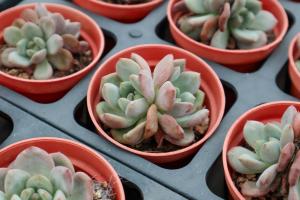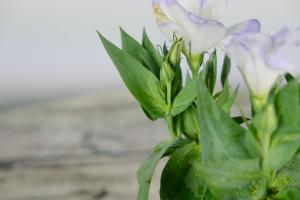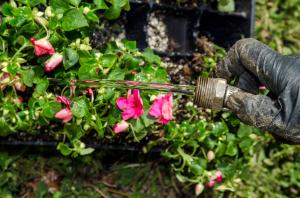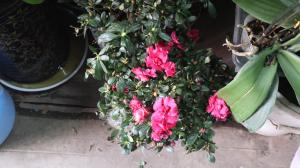Introduction
Using rocks in potted plants has several benefits, including improved drainage and aeration of the soil. But, not all rocks are suitable for potted plants. In this article, we will discuss the types of rocks that are best for potted plants.
Volcanic Rocks
Volcanic rocks, such as lava or pumice, are excellent for potted plants. They are lightweight, porous, and provide excellent drainage for plants. These rocks also help to aerate the soil and prevent compaction, which can be harmful to the roots of plants. Another benefit of volcanic rocks is that they contain natural minerals that can enrich the soil and promote healthy plant growth.
River Rocks
River rocks are another type of rock that can be used in potted plants. They are smooth and rounded, making them an aesthetically pleasing addition to any pot. These rocks are also available in a variety of colors, which can add to the overall look of the plant. However, river rocks do not provide the same level of drainage and aeration as volcanic rocks. Therefore, they are best used in combination with other types of rocks.
Pea Gravel
Pea gravel is another option for potted plants. It is a type of small, rounded rock that is often used in landscaping. Pea gravel allows for good drainage and aeration of the soil, which can promote healthy plant growth. However, pea gravel can be heavy and may make pots difficult to move. It is also not as aesthetically pleasing as other types of rocks, so it may not be the best choice for plants that are on display.
Crushed Granite
Crushed granite is a popular option for potted plants because it provides excellent drainage and aeration. This rock is made up of angular pieces that interlock, creating pore spaces that allow for air and water to flow freely. Crushed granite also provides a stable base for plants, preventing them from sinking into the soil. However, crushed granite can be heavy and difficult to work with, so it may not be the best option for large pots.
Sand
Sand is a common material used in potted plants to improve drainage. However, it is important to use the right type of sand. Coarse sand, such as builder's sand or horticultural sand, is the best choice for potted plants because it allows for good drainage and aeration. Play sand or beach sand should be avoided because it is too fine and can cause the soil to become compacted.
Conclusion
When choosing rocks for potted plants, it is important to consider their drainage and aeration properties. Volcanic rocks, river rocks, pea gravel, crushed granite, and coarse sand are all suitable options for potted plants. By using the right type of rock, you can promote healthy plant growth and ensure that your plants look their best.

 how many times do yo...
how many times do yo... how many planted tre...
how many planted tre... how many pine trees ...
how many pine trees ... how many pecan trees...
how many pecan trees... how many plants comp...
how many plants comp... how many plants can ...
how many plants can ... how many plants and ...
how many plants and ... how many pepper plan...
how many pepper plan...































